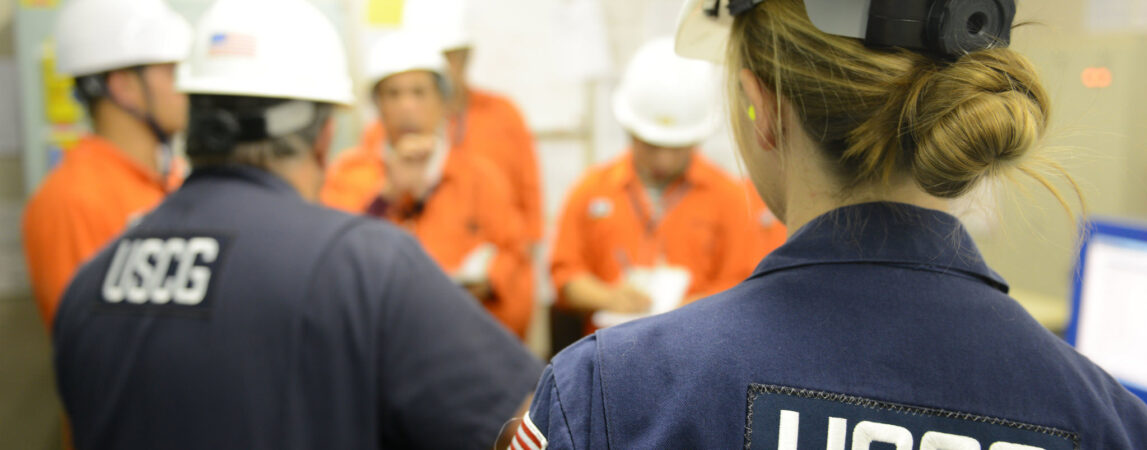
The Coast Guard is responsible for inspecting vessels (e.g., boats or ships) that are registered in the United States or are foreign ships in U.S. waters.The Coast Guard delegates this responsibility to the Officer in Charge, Marine Inspection. Inspections are done either under Flag State responsibility or Port State responsibility. The four basic categories of vessels subject to inspection are:
Passenger vessels.
This category of vessel includes crew boats, nautical school vessels, cruise ships, excursion vessels, charter fishing boats, etc., carrying more than six passengers.
Tank vessels.
This category of vessel includes tank ships and tank barges.
Cargo vessels.
This category of vessel includes container vessels, freight vessels, roll on/roll off (RO/RO), etc.
Special use vessels.
This category of vessel includes mobile offshore drilling units (MODU) offshore supply vessels (OSV), oceanographic research vessel (ORV), oil spill response vessel (OSRV), nautical school vessels, sailing school vessels, etc.
There are two kinds of inspections: Safety and Security.
Inspections of vessel safety systems includes the following:
- Hull inspection to ensure seaworthiness of vessel.
- Main/auxiliary power inspection to ensure safe and operable machinery for vessel propulsion and emergency power.
- Boiler inspection to ensure that it is structurally sound with operable safety devices.
- Electrical systems inspection to ensure satisfactory installation of wiring and equipment.
- Lifesaving systems inspection to ensure satisfactory and adequate means to abandon ship.
- Firefighting systems inspection to ensure fixed and portable devices are suitable for the intended space and type of fire.
- Navigation inspection to ensure adequacy and operation of navigation equipment.
- Pollution prevention inspection to ensure compliance with international regulations and domestic laws.
- Inspections of vessel security systems includes the following: Verification of security related documents and certificates such as the ship security plan, International Ship Security Certificate and Declaration of Security.
- Ensure appropriate training drills, and exercises are being conducted.
- Ensure required on board security procedures are in place.
FOREIGN TANK VESSEL EXAMINATION CHECKLIST
LLOYDS PSC POCKET CHECKLIST
Please wait while flipbook is loading. For more related info, FAQs and issues please refer to DearFlip WordPress Flipbook Plugin Help documentation.
Please wait while flipbook is loading. For more related info, FAQs and issues please refer to DearFlip WordPress Flipbook Plugin Help documentation.
